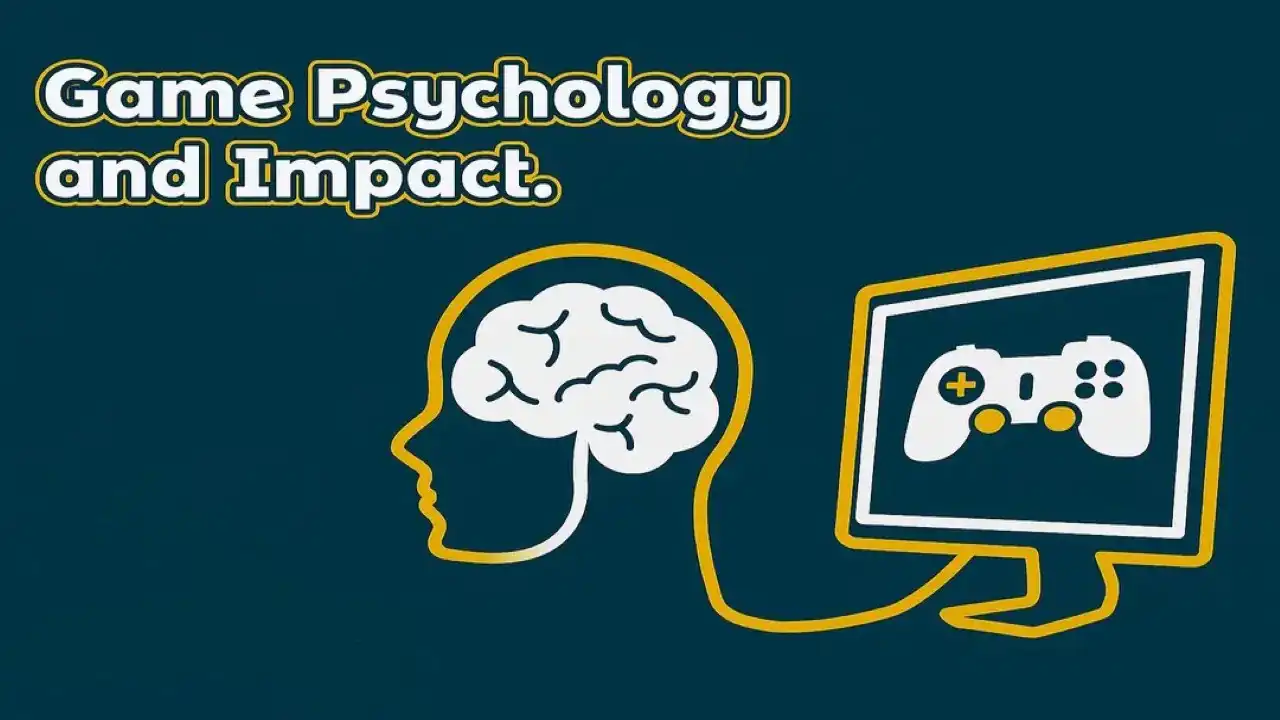
Let's be honest, have you ever told yourself that just one more level and thenfour hours have already passed?
You’re not the one who has experienced it and it’s not just because you lack self-control. The game designers know exactly how to keep us hooked, and it’s a clever blend of psychology, strategy, and a drop of dopamine.
Let’s look into the actual reason why games are so hard to stop playing and what’s going on behind the screen.Instant Rewards Results Instant Satisfaction Think about the most addictive games, such as Candy Crush, Subway Surfer, and Clash of Clans, and start giving rewards immediately. As you win a level, you get a burst of coins, stars, fireworks, sound effects, a happy jiggle celebration, and more exciting gifts- all of these light up your brain’s reward system excitement. In simple science, these wins trigger a hit of dopamine.
These small rewards you get after winning each level make you feel good right away. It’s the same feeling you feel after getting a like on social media. You feel good, so you want more. It’s a powerful catch that many games in the gaming industry use effectively. The Power of Progress Bar We humans are naturally inclined to complete things. So, when we see that
the progress bar is at 80%, it becomes impossible to ignore without completing the targets.
Games like Minecraft, Genshin Impact, or PUBG Mobile give you every day a mission, target, and achievement to fulfill. Even when you are not planning to play, the unfinished task pulls you in. It’s like you’re leaving the last slice of pizza. And who doesn’t want it?Habit Loop Formation Here is a phycology loop in action Cue: You feel bored or suddenly a game notification pops up that leads you to open the app and boom, you can’t stop playing.
Rewards: You win a level and get rewards. The dopamine gets hit and you keep doing it.
Routine: You have a routine of opening the game at least once a day.
As you repeat this for some time, you have formed a habit. Games like Clash of Clans, or Township build on this loop. Over time, opening the game becomes a habit like opening Instagram every day or sipping tea in the morning. Countdowns and Fears of Missing Out
Have you ever observed those time-limited tasks or rewards?
For example,
special events that last for 24 hours or Only 1 hour left to claim the rewards”, it’s a trick to increase engagement through urgency. The gaming industries
often rely on these techniques for mobile gaming market expansion. You feel like if you don’t log in right now, you will miss the chance to win something valuable and it’s called FOMO, the fear of missing out. These tactics significantly contribute to the online gaming market size and forecast.
Games like Genshin Impact, AFK Arena, or mobile legends thrive on time-limited mechanics which results in converting an occasional player into a daily user.
Social Hooks and Rankings Several games take things a step further. The ranking system keeps you chasing for the next mission, the more you get closer, the harder it becomes to stop.
Leaderboards, rankings, and in-game chat add pressure to perform, fulfil, and at least open the game regularly.
Games like Call of Duty: Mobile, Apex Legends, or Volorant thrive on strong social mechanics that keep the players engaged. And, after all, who wants to
be that friend who breaks the squad’s winning streak?
Personalisation and Control Another factor that pulls us in is the customization option. You become more
attached to a game when you can personalise it to your liking.
From custom characters to designing the game loadouts, games let you express your identity. This emotional investment makes it harder to leave the
game. You’re not just quitting the game, you leave behind your creativity, your achievements, progress, and creations. This deep emotional engagement
plays a vital role in game development company growth as developers compete to offer unique and captivating gameplay experiences.
This feeling of ownership creates a strong sense of commitment, making it much harder to walk away. The Sims, Animal Crossings, and Fortnite are certainly prime examples. These games offer numerous features that make the gameplay feel extremely personal.
Smart Design, Ethical Dilemma So, here is where things get tricky. While design elements keep us entertained
and engaged, some games blur the line between fun and exploitation. Certain features like microtransactions, lifeline limits, and pay-to-win modes, can result in turning an exciting and fun game into a draining grind. This can even become worse like addictive behaviours, unhealthy spending hours, and
excessive screen time.
Game designers walk a fine line. The best games are those that encourage without exploiting players. As a player, you must learn to set boundaries.When you feel like a game is starting to interfere with your daily life.Then, remember to take a break and start it when you feel back in control.
Wrapping Up Addictive Game design isn’t any magic, it’s science. Every time limit, every notification, ranking system, reward, and leaderboard, is there for a reason.
And, now I hope you know the psychology behind it. Enjoy the game at your own pace. Is it a bad thing? Not necessarily. Good designs make the games enjoyable,
challenging, and rewarding. And, sometimes we also want to dive into another world and get lost in it. But remember, next time when you find yourself
saying, just one more level, take a moment, Are you enjoying it or just stuck in the loop?
Games are meant to entertain, not control. The future of the gaming industry depends on maintaining a proper balance of innovation and responsibility. So,
Play smart, stay aware, and enjoy the magic without losing yourself in the games.